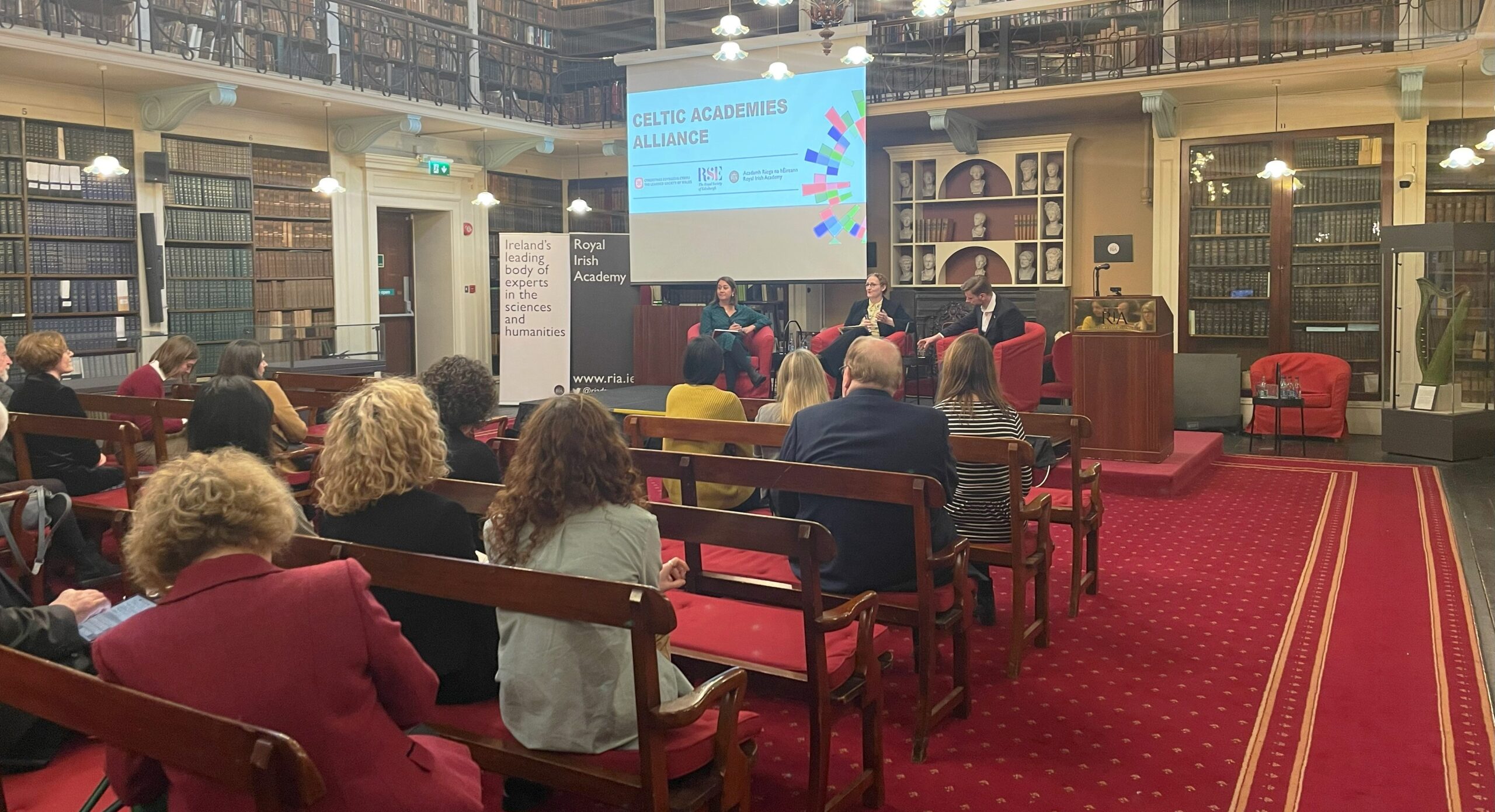Celtic Collaborations Celebrated in Dublin

“While so much in the world is subject to rapid change, Wales, Ireland and Scotland will always be neighbours.”
The Celtic Academies Alliance, formed of LSW, RSE and the Royal Irish Academy, held an Ireland-Wales Research and Innovation Showcase event on Tuesday 12 March in Dublin.
Researchers from a broad range of disciplines – marine microbiology, heritage tourism, Jewish history – emphasised the mutual benefits of Ireland-Wales research collaboration. Professor Mary-Ann Constantine FLSW (UWTSD) spoke about previous experience with EU Interregional Funding, and Professor Nathan Abrams FLSW (Bangor University) and collaborator Dr Zuleika Rodgers (Trinity College Dublin) gave an update on their ongoing LSW-Agile Cymru Ireland-Wales Networking Grant.
Dr Jessica Kevill (Bangor University) and Niamh Cahill (University of Galway) were invited to represent the multilateral Horizon Europe project BlueAdapt. We also heard from Dr Ciara Healy-Musson (Institute of Technology Carlow), Professor Mary Modeen (University of Dundee), and Dr Melanie Ramdarshan Bold (University of Glasgow), recipients of RSE-RIA Ireland-Scotland Research Networking Grants, which serve as a model of success for bilateral funding.
The researchers found that sharing resources and expertise across the Irish Sea led to better, and more efficient research. From safer wild swimming to inclusivity in children’s literacy, the common thread throughout the event was meaningful benefits for our communities that are deepened through international collaboration.
While so much in the world is subject to rapid change, Wales, Ireland and Scotland will always be neighbours. Speakers identified specific resonances between the Celtic nations: similarities in culture, size, and geography; cultures of academia and scholarship that punch above their weight; and a collective desire to move away from traditionally Anglo-centric and London-centric research. The realities that researchers study are inherently transnational but, by contrast, funding schemes are typically siloed; this is why international funding agreements are so important.
A panel featuring LSW CEO Olivia Harrison, RIA Executive Director Dr Siobhán O’Sullivan, and Deputy Head of the Scottish Government Ireland Office Paddy Makin, discussed the particular benefits of delivering funding through national academies. Makin noted that, from the perspective of government, academies bring the expertise of their fellowship into directing the themes of the research funded by the scheme. This brings new topics of importance to the attention of policymakers which they may not have thought about before.
The Welsh Government was credited for recognising the added value of strengthening relationships between the academies. Former senior vice-president of the RIA Professor Gerry McKenna also noted the longevity and stability that national academies offer: RIA and RSE have existed for centuries and, while LSW is only fourteen years old, our ambition is to play a steadfast role in the future of Wales.